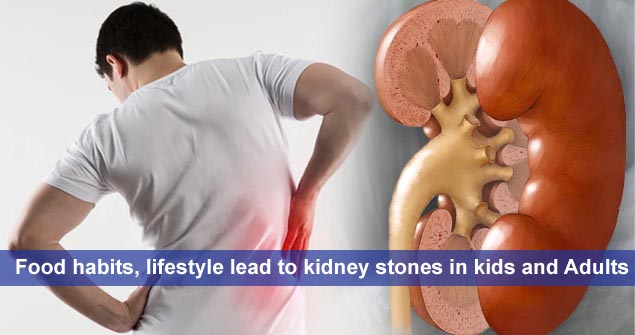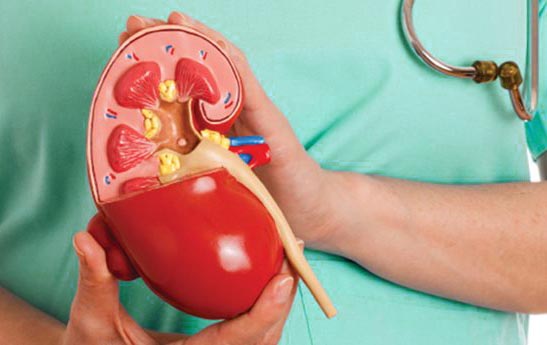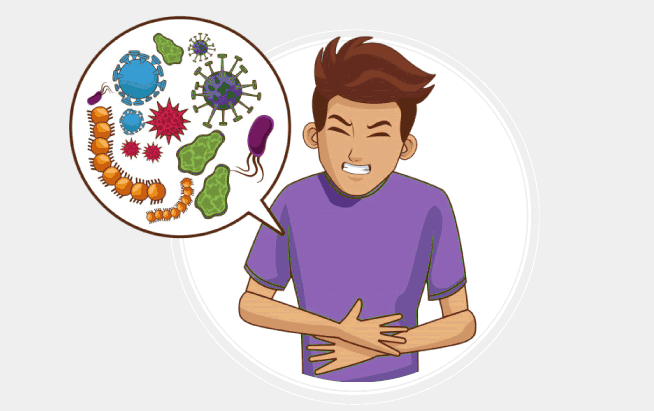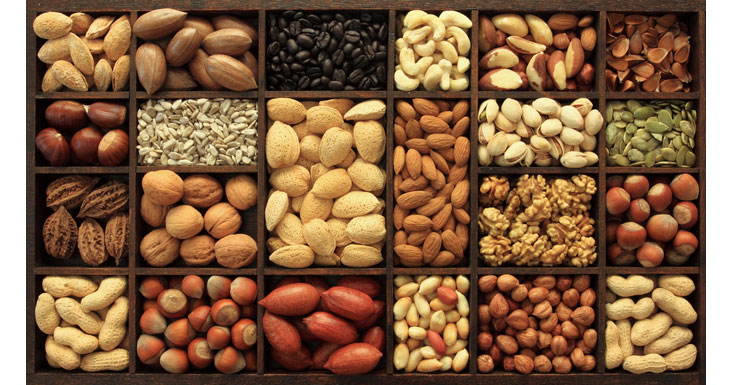Children as young as two are having surgery to remove kidney stones, once considered a grown-ups affliction.
Minal and Mehul Joshi (names changed) were shocked to be told their 18-month-old son Yash had a complex stone, Staghorn calculi, in his kidneys. ‘‘One has always associated kidney stones with uncles and grandfathers. Moreover, the condition seemed easy to resolve with medicines. But we were devastated to learn our son needed a procedure,’’ says Minal.

She believes poor water intake was to blame. But an April study in the Journal of Paediatrics lists a host of lifestyle factors — increased intake of salt, lower intake of milk, obesity and antibiotics — and says these doubled the incidence of kidney stones in South Carolina’s children between 1996 and 2007.
India does not have its own studies on paediatric kidney stones. Doctors offer varied opinions but all agree it’s cause for concern. Paediatric urologist Dr Arbinder Singhal, who operated on Yash says he has seen at least seven or
eight such cases in the last one year.
Steps towards Prevention
- Cut down on colas and drinks high in sugar or salt. A Wisconsin university doctor has warned it’s not just salty chips and French fries, but processed foods like canned soups, packaged meals and even sports drinks
like Gatorade- Dairy products can reduce the risk of stones because dietary calcium binds with oxalate before it reaches the kidney
- Children between five and 10, who have stones, should drink six glasses of water a day. Be active
Calcium supplements to blame for kidney stones?
India’s young are getting hit with kidney stones. Paediatric urologist Dr Arbinder Singhal says: ‘‘We have been seeing about seven to eight children with kidney stones every month for the last one year.’’ In fact, an endoscopic technique called percutaneous nephrolithotomy that was used for grownups was recently improvised for use in children.
The Mumbai-based Paediatric Oncall Journal states that ‘‘kidney stones are not very common in children. However, these stones are being discovered now with increasing frequency, amounting for up to one in each 1,000 childhood admissions.’’ Paediatric nephrologist Dr Pankaj Deshpande says he has seen infants as young as six months with kidney stones. ‘‘We’re definitely seeing more children than before,’’ he says.
Most kidney stones occur when oxalate, a byproduct of some foods, binds to calcium in urine. Other common stones are calcium phosphate and uric acid stones. While no such reasons are established in India, Dr Deshpande feels that only lifestyle reason he would identify is the rampant use of calcium supplements. ‘‘Another reason could be better availability of technology. A decade back, ultrasound screening wasn’t as frequently prescribed as it is today for children,’’ he says.
Preventing kidney stones
To prevent the formation of stones in the kidney, one should drink more water if one notices yellow coloured urine which is a sign of less water in the body, says Dr N Subramanian
Kidney stones are solid mineral deposits that accumulate inside the kidney or in other parts of the urinary tract. It can cause acute pain. There can be one or more stones present at the same time in the kidney or in the ureter. Some symptoms are severe back or abdominal pain, nausea and vomiting along with excessive sweating. If there is fever also, one should consult a doctor.
To prevent kidney stones
Drink at least three litre of water daily as this prevents dehydration and reduces the risk of forming stones. Additional water should be taken while performing strenuous exercise. One should drink more water if one notices yellow coloured urine which is a sign of less water in the body
- Eating a tender coconut daily prevents stone formation
- Eat low-fat diet rich in proteins. Increase intake of fruits and vegetables Self-care at home
- Remain well hydrated and keep the urine diluted
- If you are taking calcium stones, avoid consuming animal protein from meat and dairy products
- Discontinue consumption of calcium supplements and food rich in calcium like ice creams, chocolates, tea etc
- Patients suffering from oxalate stones should avoid consumption of green vegetables, black pepper, almonds and peanuts
- Salt intake should be restricted
- People suffering from uric acid stones must avoid citrus fruits
Points to remember
- Most stones pass out of the body without a doctor’s help
- When you pass a stone, try to catch it in a strainer to show your doctor Consult your doctor if you have severe back pain and it doesn’t subside. Or, you spot blood in urine
Types of kidney stones
Sometimes a smooth large stone may pass through with little pain whereas a small one with spicules may get stuck and cause excruciating pain, says Dr Ajit Saxena
A kidney stone is a solid piece of material that forms in a kidney out of the substances in the urine. A stone may stay in the kidney or break loose and travel down the urinary tract. While a small stone may pass out of the body without much pain, a larger stone may get stuck in the ureter, bladder, or the urethra, causing a lot of pain. The shape of the stone also determines the pain. Sometimes a smooth large stone may pass through with little pain whereas a small one with spicules may get stuck and cause excruciating pain.
Types
- Calcium: An important part of the diet, it is required for healthy bones and muscles. However, the calcium that is not used by the body is flushed out by the kidney along with the urine. In some people, it joins with other waste products to form a stone.
- Struvite stone: This stone may form after an infection in the urinary system. It contains minerals, magnesium and waste products (ammonia)
- Uric acid stone: This forms when the urine contains too much acid. In such cases one may have to cut down on the amount of meat
- Cystine stones: They help in the formation of muscles, nerves, and other parts of the body. Cystine can build up in the urine to form a stone. Formation of these stones is genetic. Stones which are passed spontaneously should be saved for analysis
Ways to expel stone
- Take fluids in abundance as this helps flush out the stone. It increases the movement of a stone through the urinary tract
- Pass the urine forcibly and
speedily when the bladder gets full, so that the stone in the pathway goes down faster. Chemical analysis of a calculus passed in the urine or removed surgically is very helpful in identifying the underlying causative factor and helps prevent recurrences.




